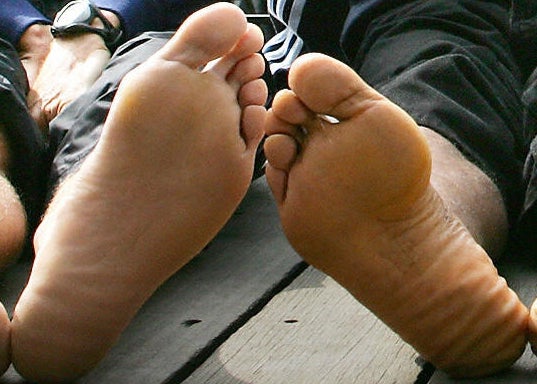
What do you come out with? BSc
Why do it? "Podiatry offers a diverse career with flexibility of working, challenging scope of practice and working with a wide variety of people. It also allows you to specialise in many areas of practice i.e. sports, paediatrics, surgery, high risk wound care. You need to have good communication and problem solving skills as no two feet are the same. Podiatry is an ever changing profession with new developments in healthcare emerging daily and opportunities to learn new skills. A degree in this area will lead to a rewarding job helping people live their lives without pain and improving their mobility." - Mark Cole, lecturer in podiatry, University of Southampton
What's it about? The study of foot health. A podiatrist looks after it all, from broken foot bones to fungal infections. They have expertise in all foot-related areas from below the knee to the tips of your toes and are trained to recognise and diagnose conditions that might be treated via surgery, gait assessment, orthotics, physiotherapy or biomechanics. Podiatry is also increasingly used to help reduce complications associated with long term medical conditions such as diabetes, rheumatoid arthritis and heart disease. It is also useful in helping to maintain mobility in the elderly, disabled or injured. There are 13 institutions offering full-time or part-time BSc degrees in podiatry, all of which are endorsed by the Society of Chiropodists and Podiatrists.
Study options: Three years usually but four years at a Scottish university. You’ll also undergo a clinical placement. At Sussex, for example, you do about 10 weeks of clinical (hospital based) training a year but the rest is spent on theory.
What will I need to do it? At least one science subject usually. Southampton asks for BBB; Glasgow Caledonian wants CCD; Huddersfield wants 300 UCAS points and New College Durham requires160 UCAS points. Most institutions interview their applicants too.
What are my job prospects? Great. One of the reasons the NHS is likely to fund your degree is because it is crying out for podiatrists. And, if you don’t fancy it, you can always join a private practice or work abroad. Some states in Canada, Australia and Singapore are among the countries that recognise UK podiatry qualifications and don’t require further study. You’ll be looking at an average starting graduate salary of almost £21,000 – not bad!
Where’s best to do it? The Complete University Guide 2012 puts Southampton at top in the “other subjects allied to medicine”, followed by Glasgow Caledonian among the universities where you can take a podiatry course. UWIC is the first for student satisfaction where you can actually apply for podiatry.
Related courses: Physiotherapy; medicine; medical sciences; health and social care; nursing.
Subscribe to Independent Premium to bookmark this article
Want to bookmark your favourite articles and stories to read or reference later? Start your Independent Premium subscription today.

Join our commenting forum
Join thought-provoking conversations, follow other Independent readers and see their replies